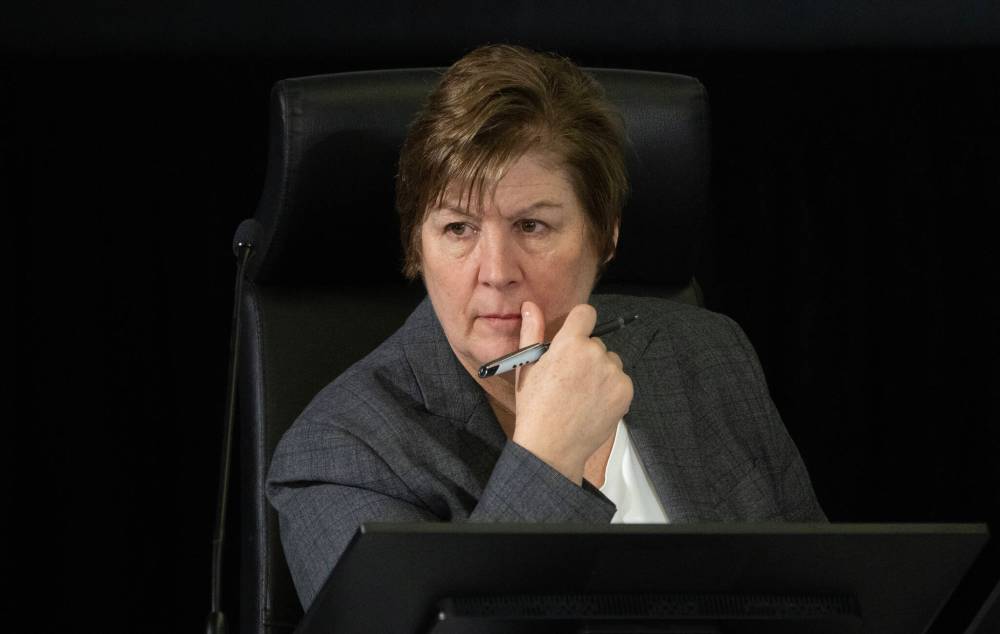A report replete with good electoral advice
Advertisement
Read this article for free:
or
Already have an account? Log in here »
To continue reading, please subscribe:
Monthly Digital Subscription
$1 per week for 24 weeks*
- Enjoy unlimited reading on winnipegfreepress.com
- Read the E-Edition, our digital replica newspaper
- Access News Break, our award-winning app
- Play interactive puzzles
*Billed as $4.00 plus GST every four weeks. After 24 weeks, price increases to the regular rate of $19.00 plus GST every four weeks. Offer available to new and qualified returning subscribers only. Cancel any time.
Monthly Digital Subscription
$4.75/week*
- Enjoy unlimited reading on winnipegfreepress.com
- Read the E-Edition, our digital replica newspaper
- Access News Break, our award-winning app
- Play interactive puzzles
*Billed as $19 plus GST every four weeks. Cancel any time.
To continue reading, please subscribe:
Add Winnipeg Free Press access to your Brandon Sun subscription for only
$1 for the first 4 weeks*
*$1 will be added to your next bill. After your 4 weeks access is complete your rate will increase by $0.00 a X percent off the regular rate.
Read unlimited articles for free today:
or
Already have an account? Log in here »
Hey there, time traveller!
This article was published 31/01/2025 (219 days ago), so information in it may no longer be current.
It’s recommendations 31 and 28 that catch the eye.
They’re found way, way back in Volume 5 of the final report of the Public Inquiry into Foreign Interference in Federal Electoral Processes and Democratic Institutions.
The media focus when Commissioner Marie-Josée Hogue’s final report came out on Tuesday was all about the fact that there wasn’t a smoking gun discovery of a traitor or traitors amongst parliamentarians and former parliamentarians in Canada.

Adrian Wyld / THE CANADIAN PRESS files
Commissioner Marie-Josée Hogue
But there is plenty more in the report that aims to prevent or derail future foreign interference in Canadian politics.
Recommendation 31 of the report says, basically, that leadership and nomination contests should have many of the same sort of stringent rules that Canadian elections do.
“Although the evidence before me does not indicate that foreign interference in federal nominations has been widespread to date, nomination contests are nevertheless vulnerable to foreign interference,” Hogue wrote. “Foreign states could also manipulate nomination contests through inauthentic membership purchases. They could buy bulk memberships and assign those memberships to people who will vote as the foreign state wants. Voters who are not Canadian citizens or permanent residents — foreign students from autocratic states, for example — may be susceptible to coercion by their home countries.”
Political parties apparently aren’t keen on more regulation. Hogue is.
“Political parties are private entities and, in our democracy, they have considerable autonomy over their decision-making processes,” Hogue wrote. “But I strongly encourage all parties and their electoral district associations to adopt more stringent rules about who is entitled to vote in nomination and leadership contests. These rules could include requiring party membership for a longer minimum period and requiring proof of residency in the riding.”
Hogue also recommends some hard and fast rules: financial reporting on contributions and expenditures in nomination and leadership contests, and that parties be required to get voters in those process to give declarations of eligibility, which, along with records of voting results, would be kept for up to seven years.
As well, that Canadian election law pertaining to undue influence by foreigners, bribery and intimidation should be extended to party nomination and leadership contests.
And recommendation 28? Well, perhaps you could call it the Pierre Poilievre recommendation, as the Conservative leader has steadfastly refused to get a Top Secret security clearance.
“It is preferable for political party leaders to have a Top Secret security clearance. A party leader without a clearance may not be able to receive the detailed information they need to understand and act against the foreign interference risk facing their party,” Hogue wrote.
The problem is that the time to address a candidate’s risks is preferably before they run in an election and potentially gain a seat in the House of Commons.
Hogue’s position did come with a caveat: the Top Secret clearance shouldn’t be a requirement.
“Security clearances may be denied for all kinds of reasons, even some that may be unrelated to the individual applicant. Moreover, requiring a leader to obtain a security clearance would be an intrusion by the government into the freedom of political party members to choose their party leader,” Hogue wrote. “Imposing a mandatory security clearance requirement for party leaders would, in my view, severely interfere with basic rules of Canadian democracy as it could result in disqualification of the person chosen by a party’s members to lead it.”
That is, of course, a fascinating parsing of words, and you have to repress the urge to read between Hogue’s lines.
To recap: no smoking gun on traitors. Security clearances for party leaders are a best practice. Full-scale election rules should apply to party nominations and leadership races to prevent foreign interference.
Plenty of eminently reasonable advice — now, let’s act on it.


